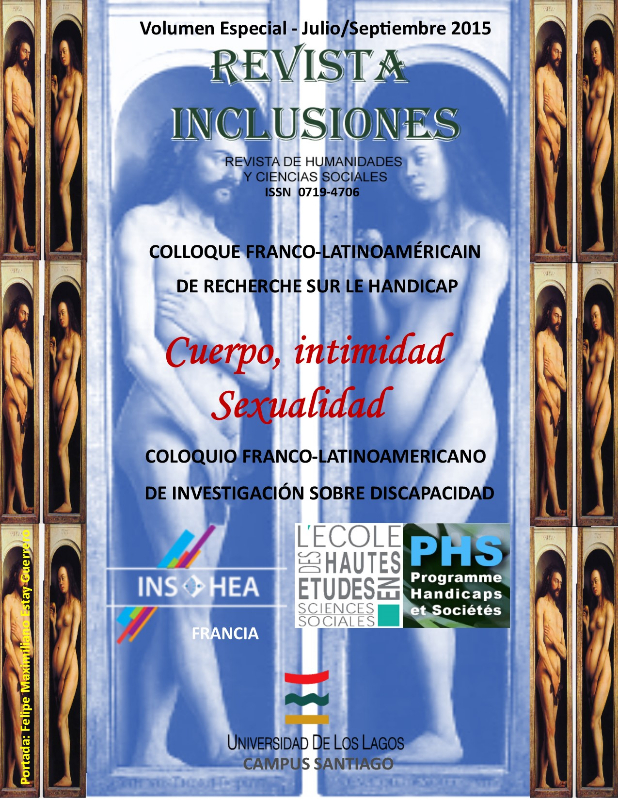TO BE A WOMAN AND A MOTHER DESIGNATED “MENTALLY HANDICAPPED PERSON”: PRIVACY BETWEEN INVISIBILITY AND STIGMATIZATION
Abstract
The experience of maternity of women designated <>, the preliminary situation, is practiced often under institutional pressure; it is thought, framed, socialized for guardian institutions of normality. The object of the article will be to show that under the domination of a normative model of: <>, these women are held for accepting the responsibility of their maternity by themselves: model where the father is hardly included. To be a <> it is a reward in a context where the situation of disability remained a cause of social exclusion. Their social experiences put them constantly in struggle with risk of reinforcing stereotypes. If we talk about doubts about their maternal skills, they live in a constant condition of stress and the fear that the custody of children be withdrawn of them. This experience institutes that they call<< enlèvement d'enfant>>. The negociation is for almost impossible for them. The exposure of a different event of « enlèvement d’enfant » for a designated mother << mentally handicapped person>>, it will show us how much the media and the judicial actors overexpose their privacy, to risk of reinforcing the stereotypes associated of <>, but also her own responsibility depending on the norms of<< good child for producing>> (Cresson and Gadrey 2004: 33). It will be about of reporting strategies of internal avoidances and secondary adaptations, which are developed to the consideration of holders of judgments less encouraging, indeed unfavorable.
Downloads
Published
How to Cite
Issue
Section
License
Los autores retienen los derechos de autor y otorgan a Revista Inclusiones el derecho de publicación bajo Creative Commons Attribution 4.0 International (CC BY 4.0). Esto permite el uso, distribución y reproducción en cualquier medio, siempre que se otorgue la debida atribución al autor.









